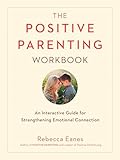“It takes a village to raise a child,” goes the old proverb. While the village may look different today, the essence of this saying remains true. Raising well-rounded, happy, and successful children is a journey, not a destination, and requires consistent effort, patience, and a toolbox of effective parenting techniques.
As a nutritionist and meal prep coach, I witness firsthand the impact that a nurturing environment has on a child’s overall well-being. Just as nourishing food fuels a child’s physical growth, effective parenting techniques provide the emotional scaffolding for healthy development.
This article delves into proven parenting strategies that foster a positive parent-child relationship, encourage responsibility, and build resilience in children.
Understanding Your Child’s Unique Needs
Every child is unique, a wonderful blend of personality traits, temperament, and talents. Effective parenting starts with understanding your child’s individual needs and tailoring your approach accordingly.
1. Active Listening: The Heart of Communication
Imagine your child excitedly sharing about their day, their words tumbling over each other. Are you truly listening, or are you preoccupied with your to-do list? Active listening involves:
- Giving your full attention: Put down your phone, make eye contact, and show genuine interest.
- Reflecting back: “It sounds like you had a great time at the park with your friends.”
- Validating feelings: “I understand why you’re upset that you couldn’t find your favorite toy.”
Active listening builds trust and makes your child feel heard and understood.
 Active Listening Parent and Child
Active Listening Parent and Child
2. Recognizing Different Love Languages
Just as we express love in different ways, children also receive love differently. The five love languages—words of affirmation, quality time, acts of service, physical touch, and gifts—can guide you in understanding your child’s emotional needs.
For instance, a child whose primary love language is physical touch might crave hugs and cuddles, while a child whose love language is quality time might cherish shared activities.
Establishing Clear Expectations and Boundaries
Think of boundaries as the loving guardrails that provide structure and security in your child’s life.
1. Setting Age-Appropriate Rules
Children thrive in environments with clear expectations and consistent routines. When setting rules, consider your child’s age and developmental stage. For example, a toddler might need simple rules about tidying up toys, while a teenager might benefit from guidelines regarding screen time and curfew.
2. The Power of Natural Consequences
Natural consequences are the outcomes that naturally follow a child’s actions, without parental intervention. For example, if a child refuses to wear a jacket on a chilly day, the natural consequence is feeling cold.
Allowing your child to experience the natural consequences of their choices (when safe and appropriate) teaches valuable life lessons about responsibility and decision-making.
Positive Discipline: Nurturing Cooperation and Respect
Discipline doesn’t have to be synonymous with punishment. Positive discipline focuses on teaching and guiding children towards appropriate behavior.
1. Encouragement over Praise
While praise can be motivating, it often focuses on the outcome rather than the effort. Encouragement, on the other hand, acknowledges your child’s efforts, progress, and positive character traits.
Instead of saying, “You’re such a good artist!”, try, “I can see how much effort you put into your drawing. The colors you chose are so vibrant!”
2. Time-Ins Instead of Time-Outs
When emotions run high, a time-out can feel isolating for a child. A time-in, on the other hand, provides a safe and calming space for your child to regulate their emotions with your support.
Create a designated “calm-down corner” with comforting items like soft blankets, sensory bottles, or books. During a time-in, stay with your child, validate their feelings, and once they’re calm, help them problem-solve.
 Parent and Child Reading in Calm Down Corner
Parent and Child Reading in Calm Down Corner
Fostering Independence and Resilience
Resilience, the ability to bounce back from challenges, is a crucial life skill.
1. Age-Appropriate Responsibilities
Giving your child age-appropriate chores not only teaches life skills but also fosters a sense of responsibility and belonging within the family. Even young children can participate in tasks like putting away toys or helping set the table.
2. Embracing Mistakes as Learning Opportunities
Every mistake is an opportunity for learning and growth. Instead of shielding your child from failure, encourage a growth mindset. Help them see setbacks as stepping stones to success.
The Importance of Self-Care for Parents
Remember, you can’t pour from an empty cup. Taking care of your own well-being is paramount to being an effective parent.
1. Prioritize Self-Care
Make time for activities that bring you joy and replenish your energy. Whether it’s a warm bath, a walk in nature, or reading a good book, self-care isn’t selfish—it’s essential.
2. Seek Support When Needed
Parenting can be challenging, and there’s no shame in asking for help. Reach out to your partner, family, friends, or a therapist when you need support.
Conclusion: The Journey of Effective Parenting
Effective parenting is an ongoing journey of learning, adapting, and growing alongside your child. By embracing these techniques, you can nurture a positive and loving environment where your child can thrive. Remember, there’s no one-size-fits-all approach. Trust your instincts, be patient with yourself and your child, and celebrate the small victories along the way.
As your children grow, so too will your parenting skills. Embrace the journey, stay informed, and remember that the most valuable gift you can give your child is a loving and supportive foundation from which they can confidently step into the world.
- Eanes, Rebecca (Author)
- English (Publication Language)
- Clarke-Fields MSAE, Hunter (Author)
- English (Publication Language)
- Nelsen Ed.D., Jane (Author)
- English (Publication Language)
- Used Book in Good Condition
- Latham, Glenn (Author)
- Eanes, Rebecca (Author)
- English (Publication Language)
- Phelan PhD, Thomas (Author)
- English (Publication Language)
- Nelsen Ed.D., Jane (Author)
- English (Publication Language)
- Smith, Jennifer N. (Author)
- English (Publication Language)
- Laine, Krissa (Author)
- English (Publication Language)
- Jane Nelsen and Adrian Garsia (Author)
- English (Publication Language)










